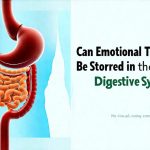The digestive system is often considered a barometer for overall well-being. While we frequently associate gut issues with dietary choices or food sensitivities, the profound impact of emotional stress on bowel function is surprisingly underestimated. Chronic stress doesn’t just affect our mental state; it intricately alters the physiology of our entire body, including the delicate processes responsible for regular and comfortable elimination. Many individuals experiencing long-term stress find themselves struggling with constipation – a condition characterized by infrequent bowel movements or difficulty passing stools. This isn’t simply an inconvenience; it can be a sign that your body is signaling distress and warrants attention.
The link between chronic stress and hard stools, or constipation, isn’t immediately obvious but is deeply rooted in the physiological changes triggered by prolonged activation of the ‘fight-or-flight’ response. When we are stressed, our sympathetic nervous system kicks into gear, diverting resources away from non-essential functions like digestion. This results in reduced gastrointestinal motility – the muscular contractions that move food through the digestive tract. Over time, this can lead to stools becoming dry and hard as more water is absorbed during their prolonged passage, making elimination difficult and often uncomfortable. Furthermore, stress impacts gut microbiome composition, potentially exacerbating these issues. Recognizing liver problems in relation to digestive health is vital for a holistic approach to health.
The Gut-Brain Axis and Stress’s Impact on Digestion
The intimate relationship between the brain and the digestive system—known as the gut-brain axis—is central to understanding how stress leads to hard stools. This isn’t a one-way street; it’s a complex bidirectional communication network. The brain influences gut function, but conversely, the gut also sends signals back to the brain that affect mood and mental state. Chronic stress disrupts this delicate balance in several ways.
Specifically, prolonged activation of the hypothalamic-pituitary-adrenal (HPA) axis – our body’s central stress response system – leads to increased cortisol production. While cortisol is essential for managing acute stress, chronically elevated levels can significantly impair digestive processes. This includes reduced gastric emptying, slower intestinal transit time and altered gut permeability (“leaky gut”). A slower transit time means stool remains in the colon longer, allowing more water to be absorbed, resulting in harder stools. The increased gut permeability allows substances to pass through the intestinal wall leading to inflammation which can further impact digestive function. It’s also important to understand if acid reflux could be a contributing factor.
Beyond cortisol, stress also affects the autonomic nervous system, specifically influencing the balance between the sympathetic (“fight-or-flight”) and parasympathetic (“rest-and-digest”) branches. Chronic stress tends to favor the sympathetic branch, suppressing the parasympathetic activity needed for efficient digestion and regular bowel movements. This imbalance contributes directly to constipation and difficulty passing stools. The microbiome is also profoundly affected; stress can reduce microbial diversity, favoring less beneficial bacteria which further complicates digestive processes. Hidden gut issues may be revealed through more detailed examination.
Understanding Constipation & Stool Consistency
Constipation isn’t just about how often you “go”; it’s about the difficulty of going. It encompasses a spectrum ranging from infrequent bowel movements (less than three per week) to straining during defecation, feeling incomplete evacuation, or passing hard, lumpy stools. The Bristol Stool Chart is a useful visual aid for assessing stool consistency, ranging from Type 1 (separate hard lumps like pebbles) to Type 7 (watery with no solid pieces). Individuals experiencing stress-induced constipation often report consistently producing stools in the higher numbers on this chart – typically Types 1 and 2.
Hard stools are particularly problematic because they require more effort to pass, increasing the risk of complications such as hemorrhoids, anal fissures, and even fecal impaction. The discomfort associated with hard stools can also lead to avoidance behaviors—delaying bowel movements when you feel the urge—which further exacerbates the problem. This creates a vicious cycle where fear of discomfort leads to more constipation. It’s important to recognize that occasional constipation is common, but persistent or worsening symptoms should be discussed with a healthcare professional to rule out underlying medical conditions. You might also consider if frequent nausea plays a role in your digestive discomfort.
The Role of Hydration and Fiber in Mitigating Stress-Induced Constipation
While addressing the root cause—stress management—is paramount, lifestyle modifications can significantly alleviate stress-induced constipation. Hydration is crucial: water softens stools and facilitates their passage through the digestive tract. Aim for at least eight glasses of water daily, and even more if you’re physically active or live in a hot climate. However, simply drinking more water isn’t always enough; it needs to be combined with adequate fiber intake.
Fiber, both soluble and insoluble, adds bulk to stools and helps regulate bowel movements. Soluble fiber dissolves in water forming a gel-like substance which slows digestion and can help soften stools, while insoluble fiber adds bulk, speeding up the passage of food through your digestive system. Good sources include fruits, vegetables, whole grains, and legumes. A gradual increase in fiber intake is recommended to avoid bloating or gas. Sudden increases can actually worsen constipation if you aren’t adequately hydrated.
Stress Management Techniques for Improved Gut Health
Effectively managing stress is the most important step toward addressing chronic constipation linked to long-term stress exposure. This isn’t about eliminating stress entirely – that’s unrealistic – but rather developing coping mechanisms to mitigate its impact on your body. Mindfulness meditation has been shown to reduce cortisol levels and improve gut function, while regular physical activity releases endorphins which have mood-boosting effects and stimulate intestinal motility.
Other effective techniques include:
– Deep breathing exercises
– Yoga or tai chi
– Spending time in nature
– Engaging in hobbies you enjoy
– Prioritizing sleep
– Establishing healthy boundaries to reduce overwhelming commitments
– Seeking social support from friends and family
If stress feels overwhelming, consider seeking professional help from a therapist or counselor. Cognitive Behavioral Therapy (CBT) can provide tools for managing negative thought patterns and developing healthier coping strategies. Remember that prioritizing your mental well-being is not selfish; it’s essential for overall health, including digestive health. Blood sugar fluctuations can also contribute to stress and digestive issues.
Dietary Considerations Beyond Fiber & Hydration
While fiber and hydration are foundational to healthy bowel function, specific dietary choices can further support gut health and alleviate stress-induced constipation. Probiotic-rich foods like yogurt (with live cultures), kefir, sauerkraut, and kimchi introduce beneficial bacteria into the gut, promoting a balanced microbiome which improves digestion and reduces inflammation. Prebiotics – found in foods like garlic, onions, asparagus, and bananas – act as food for these probiotics, further enhancing their effectiveness.
Reducing processed foods, sugar, and excessive caffeine intake can also be beneficial. These substances can disrupt gut bacteria balance and contribute to inflammation, worsening constipation. Conversely, incorporating anti-inflammatory foods into your diet—such as fatty fish (salmon, tuna), berries, leafy greens, and nuts – can support overall digestive health. Magnesium-rich foods like spinach, dark chocolate and avocados may also help soften stools due to magnesium’s role in muscle relaxation within the gut.
It is important to note that individual tolerance varies. Some individuals find certain foods trigger digestive discomfort, even healthy ones. Paying attention to your body’s signals and identifying food sensitivities can help you tailor your diet for optimal digestion.
The Importance of Movement & Exercise
Regular physical activity isn’t just good for cardiovascular health; it’s also a powerful tool for improving digestive function. Exercise stimulates intestinal motility, helping move stool through the digestive tract more efficiently. Even moderate exercise—like walking briskly for 30 minutes most days of the week—can make a significant difference.
The type of exercise isn’t necessarily as important as consistency. Find activities you enjoy and can realistically incorporate into your routine. Yoga specifically incorporates poses that massage the abdominal organs, promoting bowel movement. The stress-reducing benefits of exercise further contribute to improved gut health by lowering cortisol levels and reducing sympathetic nervous system activation.
Avoiding Common Digestive Disruptors
Certain habits can inadvertently worsen constipation and hinder digestive function. Prolonged sitting restricts blood flow to the digestive system and reduces intestinal motility. Aim to take breaks throughout the day to stand up, stretch, and move around. Similarly, ignoring the urge to defecate can lead to harder stools and increased difficulty. Responding promptly when you feel the need to go helps maintain regular bowel habits.
Certain medications—such as opioids, antidepressants, and iron supplements—can also contribute to constipation as a side effect. If you suspect a medication is causing your constipation, discuss it with your doctor; they may be able to adjust your dosage or recommend alternative options. Finally, excessive alcohol consumption can dehydrate the body and disrupt gut bacteria balance, exacerbating constipation. Moderation is key.
It’s crucial to remember that this information is for general knowledge and informational purposes only, and does not constitute medical advice. If you are experiencing persistent or severe constipation, it’s essential to consult with a healthcare professional to rule out underlying medical conditions and develop a personalized treatment plan. They can help determine the cause of your constipation and recommend appropriate interventions based on your individual needs. Gut issues may also be a contributing factor to constipation.


















